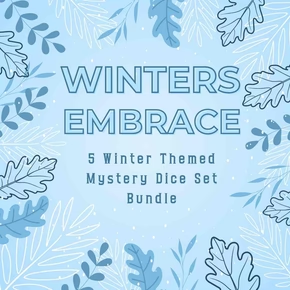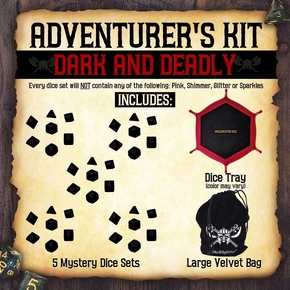
How to Play D&D Online
Pen and Paper Adventures with Mouse and Keyboard
Many folks want to know . Since 5e D&D and other pen and paper roleplaying games are meant to be played together around a table laden with and snacks. If however, you or your friends are stuck at home or far away (or are all socially isolating themselves due to a global pandemic) you'll have to either cancel your or find a way to make it work online. It can still be a chore to set up but we're living in a golden age of online tools and services you can use to make that weekly happen hell or high water (or coronavirus). Get your headsets on and login as we go through everything you need to know.
Table of Contents:
Analyze Your 's Needs
The first and most important step to your online gaming should be figuring out what your needs, which has a bit more nuanced than you may think. Not all DMs and playgroups play the same way and they don't all need the same things. A DM who relies on roleplay probably doesn't need all the bells and whistles of gaming software, whereas a more wargaming minded DM will flounder without them.
The following list includes everything your games may require, let's go through each one and figure out if your playgroup needs them:
- Steady Internet Connections
- Voice Chat
- Video Chat
- Online Rolling
- Virtual Maps/
Steady Internet Connections
This one is the baseline that's pretty tough to get around. Nothing interrupts the flow like trying to get the paladin's connection back for the fifth time in the same combat. You have a few options though if one of your players has a notoriously bad/slow setup.
If one of your players has a connection that is really slow or is generally unreliable, have a backup for them that's solely in text form. Discord, Skype, text messages, whatever is most convenient for you. Have this text channel open so that when their shoddy connection interrupts their voice or video, you can still get their actions for a turndown and figured out in text form.
If one of your players regularly loses their internet connection entirely, you'll need to work some outs into your campaign. Keep a copy of the 's sheets on hand and fabricate some sort of excuse to regularly have the disappear. With the sheets on hand, you can still play out a missing 's turns if they cut out in the middle of combat. If they're out for whole sessions, your in- reasoning can excuse the as their magical curse/shadowy benefactors/other obligations call their away for the session.
Voice Chat
You can technically get away with just text messages for a lot of situations. You likely won't be able to roleplay well or have much fun doing so, but you can get through it. Voice chat is extremely helpful for wargaming playgroups, but it'll be absolutely vital for roleplaying playgroups.
So, how do we best get everybody talking? Personally, I've had the best results using voice channels on Discord, but there are a million services out there and you can use whichever suits you best. I do recommend using something that is free though, as it's a rude imposition to demand your players buy into some service. Discord has been my best, below that is Skype, and Roll20 technically has a voice chat feature but I've found it to be unreliable.
Once you pick your method for hearing each other, check to make sure everybody is set well before time. I swear, I've never had a group chat come together without at least one or two problems along the way. Always budget yourself a buffer of 20 minutes or so to deal with whatever audio problem crops up.
Video Chat
This is where we start to get into more optional features for your games. It's nice to see your friend's smiling faces, but you don't exactly NEED to. Some of the software options you may already have voice chat capacities like Roll20, Skype, Google Hangouts, or Zoom .
Video capability is largely optional. Your introverted friends may be averse to showing up on camera as well, so work that out before making it a permanent installation of your online gaming.
I've personally found Roll20's video chat feature to be the easiest and most reliable, but again, just use whichever service seems to work best for your group.
Online Rolling
This may seem like an essential feature, but you really shouldn't need to worry about it. Unless you have that one who seems to always roll a natural 20, rolling and simply stating the results are just as good as rolling it using a program.
If you ARE super concerned about some sneaky rolls, you'll automatically have access to rollers if you're using any form of . If not, there are also Discord bots that you can use to roll your directly into the discord chat.
Virtual Maps /
This is the big question that divides playing D&D using the internet from playing online D&D, and it can certainly add a lot of work for your . using the internet is a way to work around people's schedules, playing online D&D is about using programs to enhance your . Roll20 and are probably the biggest frontrunners for this service, but they all boil down to providing some degree of a to on.
It's important to note that with a that things like how to , cost of , getting , , sheets, etc, etc can all be very different from the . All this complexity can easily deter a if not carefully managed. A that's paper is sometimes a lot easier than a virtual one.
Really though, a lot of games don't need all this. A lot of DMs make use of the "Theater of the Mind" in the first place, if you don't need a in the first place (you don't use miniatures) then you don't need a . If, however, your games DO make use of quite a few complex strategic combat encounters with handfuls of miniatures in play, you may want to pick one of these leading services:
Foundry Server
, A newer entrant to gaming, we highly recommend you check out foundry for online games. Setup takes a while, but it can greatly reduce the overall cost of playing. You can check it out here.
You can easily run a from this other new entrant, and your might even like the extensibility of this service. Check out here.
Roll20
Roll20 is free, which automatically makes it very widely used compared to its competition. It is also not attached to any single system, and already has support for the big names as well as quite a few small 3rd party systems and even board games. What it isn't though is intuitive. Running a in Roll20 often feels like navigating a strange conglomeration of photoshop and excel. It's not badly designed, but it feels like work. Especially if you're running something new, you can technically run anything on it, but expect to do some basic coding to do so. Roll20 is free, has almost unlimited potential, and takes a ton of work.
is the opposite of Roll20, it's not free for a start, and quite similar to D&D Beyond you'll have to purchase quite a few virtual books to get going. It also has a lot more artistic flair and color that keeps it from feeling like a spreadsheet. forces you to buy the books, but once you do all the work is really done for you. One of the biggest complaints used to be that it was limited to 5e D&D, but they've continued to roll out with support for other systems. You don't have a lot of opportunities for homebrew, but you also have way less work to do for a prettier result.
Overall, Roll20 is the free and versatile option, but it'll take a whole ton of prep work for you as a DM. is an expensive and pretty option that takes far less work on your part. I recommend using Roll20 if your online is a temporary thing, but think about using if you're trying to set up an online on a long-term basis.
Keep it Simple
Once you figure out your bare necessities, I recommend you stick with them. That cool lighting effect with the fog of war on your online may end up looking great, but it's not worth fiddling with it for an hour of time. Don't overthink this stuff, I've had some otherwise great online games plagued by constant troubleshooting of features that we really could have done without. Talk to your players, roleplay, play the . Anything that gets in the way of that is a distraction that you can cutaway.
Calling a In
One of the most common reasons to do any of the aforementioned online stuff is just to accommodate a who can't make it for a session. If you're facing your normal retinue of players + one call in, I've got some specific advice.
I know I said video chat wasn't important, but it's a major thing when everybody is in the room except for your one online . They'll often get forgotten, or their voices will go unheard as their transmission is drowned out by the laughter around the table. Set up a screen (spare laptop, tablet, whatever) to face the rest of the players as if the person was there. Then use your video chat of choice to display your missing 's video feed.
This may seem like a lot of extra work, but I guarantee that players will feel much more included and have a better overall.
Looking for Online D&D/TTRPGs Run By Professional DMs?
If you're looking to play D&D online check out StartPlaying, a site with hundreds of professional Dungeon Masters and games run by them. Or whatever works best for the article, we're just focusing on that hyperlinked keyword!
CLICK BELOW TO WATCH THE FULL D&D ONLINE VIDEO GUIDE!
--
Enjoy this Guide? You May Also Like:
Thinking about other classes? Check out our giant list of D&D 5e Tools and Tips here.
D&D for Beginners | Dungeons and Dragons Guide
Hungry for Adventure? Your group will love these D&D Game Night Snack Recipes
Need New Dice? Check out our Dungeons and Dragons Dice here.
New to find a D&D Group? Check out our guide on How to Find a D&D Group.

Disclaimer
Last updated: January 27, 2019
The information contained on www.SkullSplitterDice.com website (the "Service") is for general information purposes only.
www.SkullSplitterDice.com is a participant in the Amazon Services LLC Associates Program, an affiliate advertising program designed to provide a means for sites to earn advertising fees by advertising and linking to Amazon.com. (source: Section 5)
Blueshift Nine, LLC assumes no responsibility for errors or omissions in the contents on the Service.
In no event shall Blueshift Nine, LLC be liable for any special, direct, indirect, consequential, or incidental damages or any damages whatsoever, whether in an action of contract, negligence or other tort, arising out of or in connection with the use of the Service or the contents of the Service. Blueshift Nine, LLC reserves the right to make additions, deletions, or modification to the contents on the Service at any time without prior notice.
Blueshift Nine, LLC does not warrant that the Service is free of viruses or other harmful components.
Affiliate disclaimer
This affiliate disclosure details the affiliate relationships of Blueshift Nine, LLC with other companies and products.
Some of the links are "affiliate links", a link with a special tracking code. This means if you click on an affiliate link and purchase the item, we will receive an affiliate commission.
The price of the item is the same whether it is an affiliate link or not. Regardless, we only recommend products or services we believe will add value to our readers.
By using the affiliate links, you are helping support the Service, and we genuinely appreciate your support.
Affiliate advertising programs that the Service uses are:
- Amazon Services LLC Associates Program
- As an Amazon Associate, I earn from qualifying purchases.
- Blueshift Nine, LLC is a participant in the Amazon Services LLC Associates Program, an affiliate advertising program designed to provide a means for sites to earn advertising fees by advertising and linking to Amazon.com or endless.com, MYHABIT.com, SmallParts.com, or AmazonWireless.com.
- Pages on this Service may include affiliate links to Amazon and its affiliate sites on which the owner of this Service, Blueshift Nine, LLC, will make a referral commission.



